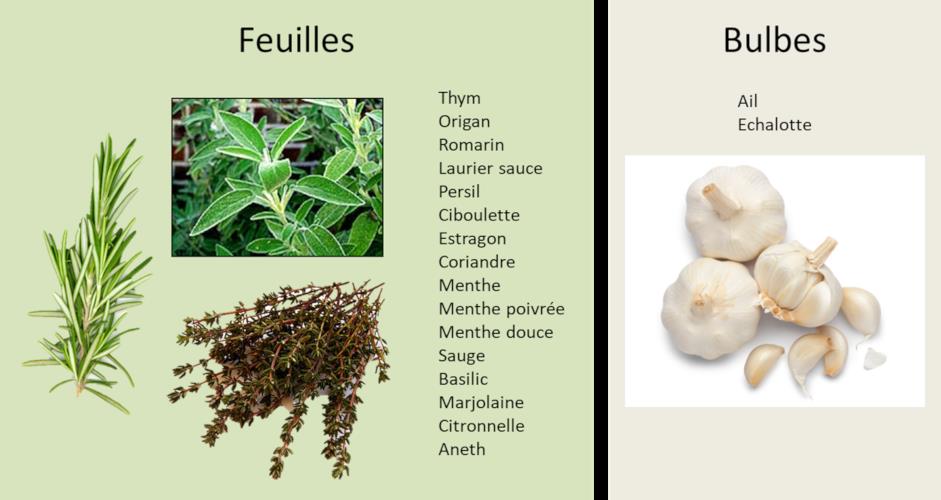
Organic herbs and spices are not only tasty but also very nutritious and have the ability to build immunity and prevent diseases. These are easily available in the market today and are a good addition to your diet.
Herbs and spices have been used for centuries for both culinary and medical purposes. Research shows that they have antioxidant, anti-inflammatory, antitumorigenic, cholesterol- and glucose-lowering activities.
Enhances Flavor
Adding a pinch of organic herbs and spices to your meals can be a fantastic way to add flavor without adding salt or sugars. Many of these spices have unique health-promoting properties that can help lower cholesterol, prevent cell damage and reduce inflammation in the body.
For example, cinnamon is rich in antioxidants that help to reduce low-density lipoproteins (‘bad’ cholesterol). Similarly, sage, thyme and oregano are all rich in polyphenols.
These compounds can be absorbed more easily by the body and can play a role in promoting healthy blood sugar levels, improving cholesterol levels, reducing inflammation and preventing cancer. They can also help to improve digestion and boost the immune system.
Herbs are derived from aromatic green plants, while spices come from other parts of the plant, such as tree bark (cinnamon), dried fruit (peppercorns), seeds (cumin), roots and rhizomes (turmeric) or “threads” from the center of a flower (saffron). Herbs can be used to enhance any meal, including those that may not need additional spice.
Adds Nutritional Value
One of the best ways to add flavor and health benefits to meals is with fresh herbs and spices. These ingredients are packed with phytochemicals, which are health-promoting chemicals that help lower cholesterol, prevent cell damage and reduce inflammation.
Herbs and spices also contain antioxidants, which can help protect against free radicals that cause chronic disease and premature aging. These nutrients can be found in foods such as garlic, ginger and turmeric.
They can even help prevent Alzheimer's disease and other types of cancer. The key is to eat a balanced diet and get the recommended daily amounts of these nutrients.
Choosing organic herbs and spices is the best way to ensure they're safe and healthy for you. They're grown using farming practices that promote soil and water conservation. Such practices include crop rotation, mulch to manage weeds and natural fertilizers like compost and manure.
Enhances Dish Appeal
Organic herbs and spices are a great way to add flavor and depth to your cuisine without resorting to additives or preservatives that can do more harm than good. Plus, they’re better for the environment and have a slew of health benefits you can count on.
Specifically, the best ones are produced using organic farming practices like crop rotation and mulching to manage weeds and natural fertilizers to feed plants and soil alike. The best part is that you can feel confident in your choices, knowing the ingredients have been cultivated with care.
The best way to get started is to do a little research on the types of herbs and spices you currently use in your cooking. Fortunately, many stores have knowledgeable associates who can help you make the transition to the healthier, more sustainable option. From there, you can browse the aisles for some new and exciting smelling ingredients. The next time you’re at the grocery store or farmers market, be sure to try some out for yourself!
Reduces Waste
One of the best ways to reduce waste in your meals is by using organic herbs and spices. These are free from chemicals and pesticides, so they will be more robust and flavorful in comparison to conventional products.
In addition to reducing waste, buying herbs and spices in bulk also helps save money. You can often find savings of 30-70% when you buy in bulk, and these savings can add up over time.
Moreover, purchasing certified organic herbs and spices will help you to support sustainable farming practices in your area. This will benefit everyone in the community from farmers to consumers.
Another important benefit of choosing organic herbs and spices is that they are healthier for you to eat. In addition to promoting environmental stewardship, they are able to contain higher concentrations of beneficial bioactive compounds like vitamins C and antioxidants.
Frequently Asked Questions
What is organic meat?
Organic meat is food that has not been treated with pesticides or artificial fertilizers. It also means that the animals weren't fed any genetically modified feed. This makes it safe for human consumption because there aren't any harmful chemicals in the meat.
Organic meats are good for the environment. The pollution levels in our environment are reduced when we eat organic foods. Organic farmers don't use harmful chemicals to kill birds and insects, which helps wildlife.
Locally purchasing organic meats is the best way to make sure you are eating healthy and organic meats. Local purchasing helps keep money local, not out of the state. Local businesses often pass savings on to customers who shop locally. Shopping locally helps to keep American workers employed, as opposed to sending them overseas.
What are the things to look for when purchasing organic products?
USDA-certified organic labels are recommended. This seal signifies that the product meets specific USDA standards. On all packages, boxes and cartons, look for the USDA Organic seal.
When shopping for meat ensure it comes only from cows that are fed 100% organic feed. Cattle are ruminants which means that they chew the cud. Ruminant cattle have 4 stomach compartments: Rumen, reticulum and omasum. Organic feeding must be done on all organs of the animal in order to get the cow labelled organic 100 percent.
When buying chicken, make sure it comes only from chickens fed 100% organic feed and never given antibiotics. Omnivore chickens can eat both plants as well as animals. A digestive tract that is omnivorous includes a crop, proventriculus and gizzard. It also contains small intestines, large intestines, and anus.
You should ensure you only buy dairy products made from milk that has been produced by cows who have been fed 100% organically grown food. Like ruminants and dairy cows, they have four stomach compartments. The fourth stomach, or the udder is where you get milk.
If you are buying other types of livestock, make sure to check the label to determine the percentage of their diet. For example, pork may be marked "95% organic" to indicate that 95 percent of the pork's feed is organic.
What are organic foods?
Organic produce is grown without pesticides, synthetic fertilizers, sewage sludge, irradiation, genetic engineering, or confinement feeding. There is no use of growth hormones and no animal testing. These crops can grow naturally so that farmers don't have to use pesticides or weed control.
Organic farming practices preserve soil quality and help conserve water resources. Organic foods are healthier than conventional foods because they have more nutrients. Organic products tend to be higher in fiber and lower fat than conventionally produced foods.
What are organic beauty products?
Organic Beauty Products contain natural ingredients without artificial chemicals, such as parabens and phenoxyethanol. These ingredients are present in all conventional beauty products including shampoos and cosmetics.
Organic beauty products do not require animal testing and are free of genetically modified organisms (GMO).
The USDA defines organic as "a system that fosters the cycling of resources." It has been used for many decades to describe food products grown without pesticides.
There has been a rise in demand for ecofriendly beauty products over the years due to the negative effects of chemical chemicals on our skin.
These include skin irritation, hormone imbalance, premature ageing, and cancer.
Organic beauty businesses are committed to providing safe, healthy products that consumers can use while protecting the environment.
What are some of the most popular organic products in your country?
Organic food is the fastest-growing industry today. But even though we've come a long way from our roots, there is still much room for growth.
Organic products are the future. They are safer and more cost-effective for consumers.
They are also generally more expensive. That's why we created the Organic Food Index. We wanted the ability to identify which foods are currently most popular and whether these trends have changed.
The results showed that organic food is increasing in popularity. The number of Americans shopping for organic food grew by nearly 50% between 2011 and 2012.
The USDA reported that organic production rose by 10% in the last year. Currently, organic food accounts for 9% in the U.S. agricultural production.
While organic food is certainly gaining ground, it seems that it is still an expensive choice for consumers. According to the Organic Trade Association, (OTA), organic food retail prices are nearly twice as expensive than conventional options.
The organic food sector is growing faster than other segments of the food supply. You can see that organic food has been steadily increasing since 2009.
In fact, according to OTA, the volume of organic products sold in supermarkets grew by 14% between 2010 and 2011.
This is because consumers are looking for healthier foods. Organic food sales have been increasing in all age groups.
However, younger generations are leading the charge when choosing organic food. Millennials are twice as likely to buy organic food compared to baby boomers. Young adults below 35 years of age account for 25%.
What are the benefits to organic farming?
Organic farming offers farmers a method of growing food that doesn't require the use of chemicals. Farmers do not need to worry about harmful pesticides harming their crops or animals.
Organic farming can also use natural fertilizers. These fertilizers aid in the growth of healthy plants as well as reducing the amount chemical waste.
Organic farming is also environmentally friendly. For example, organic farming uses composting techniques to re-use nutrients in the soil. This reduces pollutants and conserves precious resources.
Organic farming can increase crop yields and help the environment. Because organic farming uses less water during the growing season, this is why it is so successful.
Organic production methods result in farmers receiving higher prices. Healthier foods are demanded by consumers who are more aware of the dangers posed by pesticides and chemical fertilisers.
This raises the demand to produce organic food products. Organic farming is growing in popularity.
Statistics
- Once certified by the USDA, it can fall into one of four categories: "100 percent organic", "organic," "made with organic ingredients," or "made with less than 70 percent organic ingredients. (en.wikipedia.org)
- Brands participating in this challenge are committed to using 100 percent sustainable cotton by 2025.[5] (en.wikipedia.org)
- According to a study performed by consumerreports.org, organic products, compared to non-organic products, ranged anywhere from 13 percent cheaper to 303 percent more expensive. (en.wikipedia.org)
- Nutrients like omega-3 fatty acids were up to 50 percent higher in organic meats and milk than in conventionally raised products.[3] (en.wikipedia.org)
External Links
doi.org
- A Review of Journal of Toxicology and Environmental Health: Cancer Risk and Occupational Pesticide Expositions: Part B: Vol 15, Number 4
- Genetically modified foods: Safety, Risks and Public Concerns - A Review - Journal of Food Science and Technology
ewg.org
- EWG's 2022 Guide for Shoppers to Pesticides on Produce
- Clean Fifteen(tm). Conventional Produce with the Least Pesticides
ota.com
usda.gov
How To
What Organic Foods Are You Looking For?
Organic foods are those that come from plants or animals, and do not contain any chemical pesticides, fertilizers, or additives. They can be produced without the use of genetic engineering or ionizing radiation. No artificial colourings, flavour enhancers, preservatives, or colourings must be used in the food. It should not include genetically modified organisms (GMOs).
When Justus von Liebig, a chemical chemist, coined "organic", which means "life-giving," to describe the properties in manure, the term "organic" was used for the first time. The term organic is often associated with food production. Organic refers to products that only contain naturally occurring substances, such as carbohydrates, proteins, and minerals, which are all found in nature.
In the past decades, the consumption of organic products has grown dramatically worldwide. According to recent statistics, around 50% of the world's population consumes at least one organic product daily. This figure is on the rise and it is predicted to grow to 70%, 88%, and 90% in 2020.
There are many reasons that organic products are chosen by consumers. Some consumers prefer organic products for the taste. Other people prefer them because organic produce is more nutritious. Still others believe organic farming is better for the environment. Some consumers choose non-organic products because of ethical concerns about farm workers' and animal treatment.
While organic food is generally more expensive than traditional foods, prices do vary depending upon where you live. There are many factors that affect the cost of organic food. One factor is the availability of land suitable for organic agriculture. Another is the cost for inputs and labour required to grow organic crops. Other factors include transportation costs, marketing costs, and taxes. In Europe, for instance, the average price for organic food in Europe is 10% higher than its regular price.
Below are the main differences between conventional and organic foods.
- Organic produce is naturally free of synthetic fertilizers and growth regulators as well as hormones, antibiotics and other chemicals.
- Organic livestock is fed grasses and grains, rather than corn and soya meal.
- Organic milk comes from cows fed only grasses and hay.
- All raw materials used for organic manufacturing are certified organic.
- No pesticides or other harmful chemicals are allowed during organic fruits and vegetables' growth and processing stages.
- No irradiation is used in organic meat, poultry, or seafood.
- Pre-soaking is recommended for raw nuts and seed.
- Only healthy oils are used in organic cooking.
- Organic eggs are laid by hens, and have access to the outdoors.
- The traditional methods used by bees to extract honey organically are still in use today.
- Organic chocolate uses sugar and beans that have been grown and processed organically.
- Organic wines are made without chemical additives.
- The plants used to make organic tea are hand-picked.
- Organic cotton is grown with no pesticides or herbicides.
- Organic flours, cereals, and breads are free of artificial colours and preservatives.
- All-natural shampoos and soaps don't contain harsh chemicals.
- All-natural cosmetics can be used safely on your skin.
- All natural cleaning products can be biodegradable and are eco-friendly.
- All natural body products are dermatologically tested and hypoallergenic.
- All-natural products for personal hygiene are safe to use with babies as they don't contain any fragrances.
- All-natural baby formula doesn't contain bovine serum or animal rennet.
Resources:
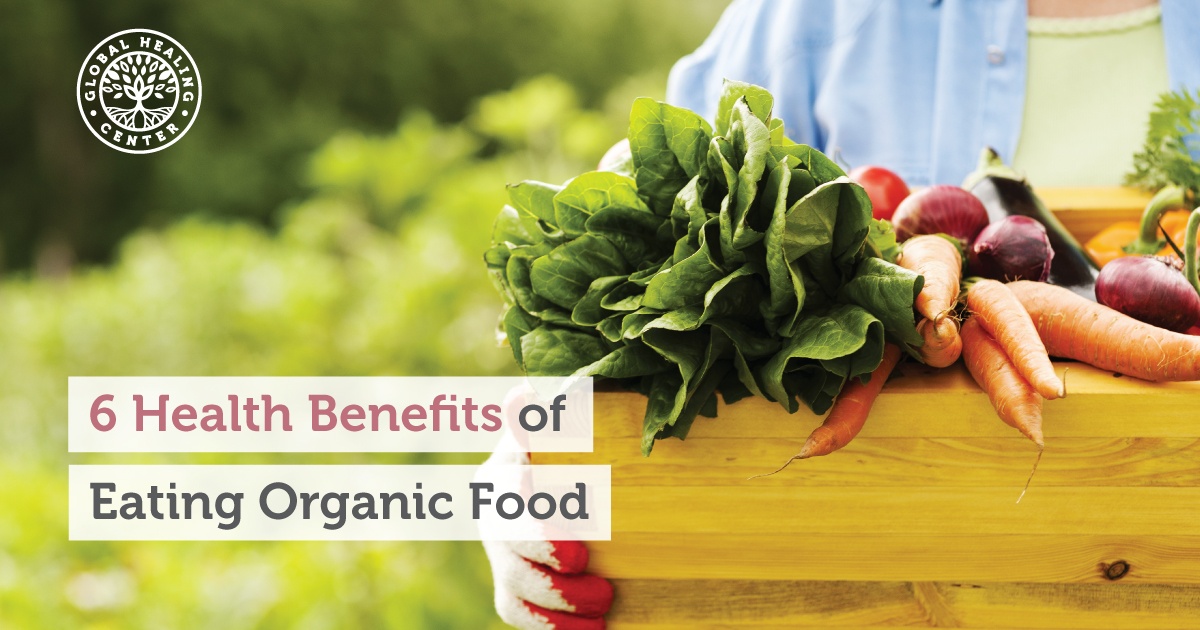 |
Nuts and SeedsNuts and seeds are nutrient-rich crunchy tidbits that add a protein, fiber and healthy fat punch to meals and snacks. They’re also a great source of.. |
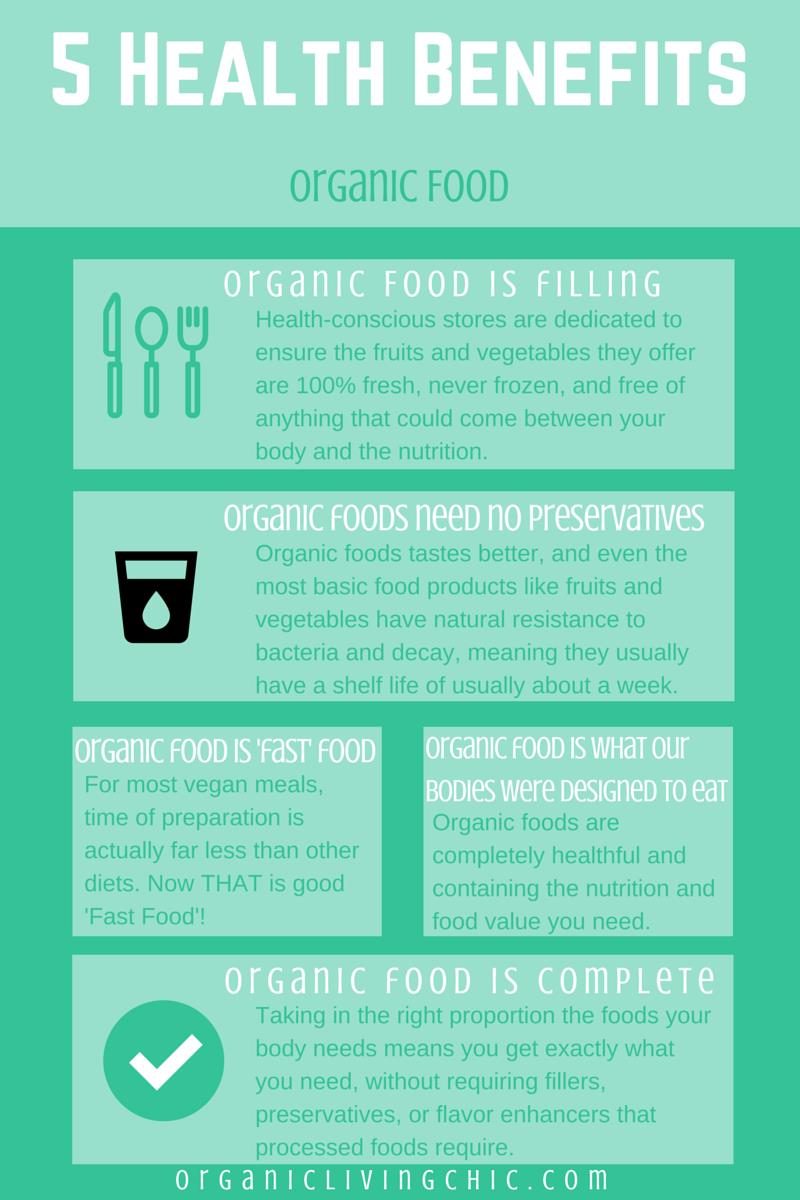 |
Organic Food For A Six Pack? The TRUTH About Organic vs Conventional Foods!Get ripped and keep your strength: http://goo.gl/uLzHn6 Hey guys, it's Clark over at Six Pack Shortcuts and today we're gonna talk about organic vs |
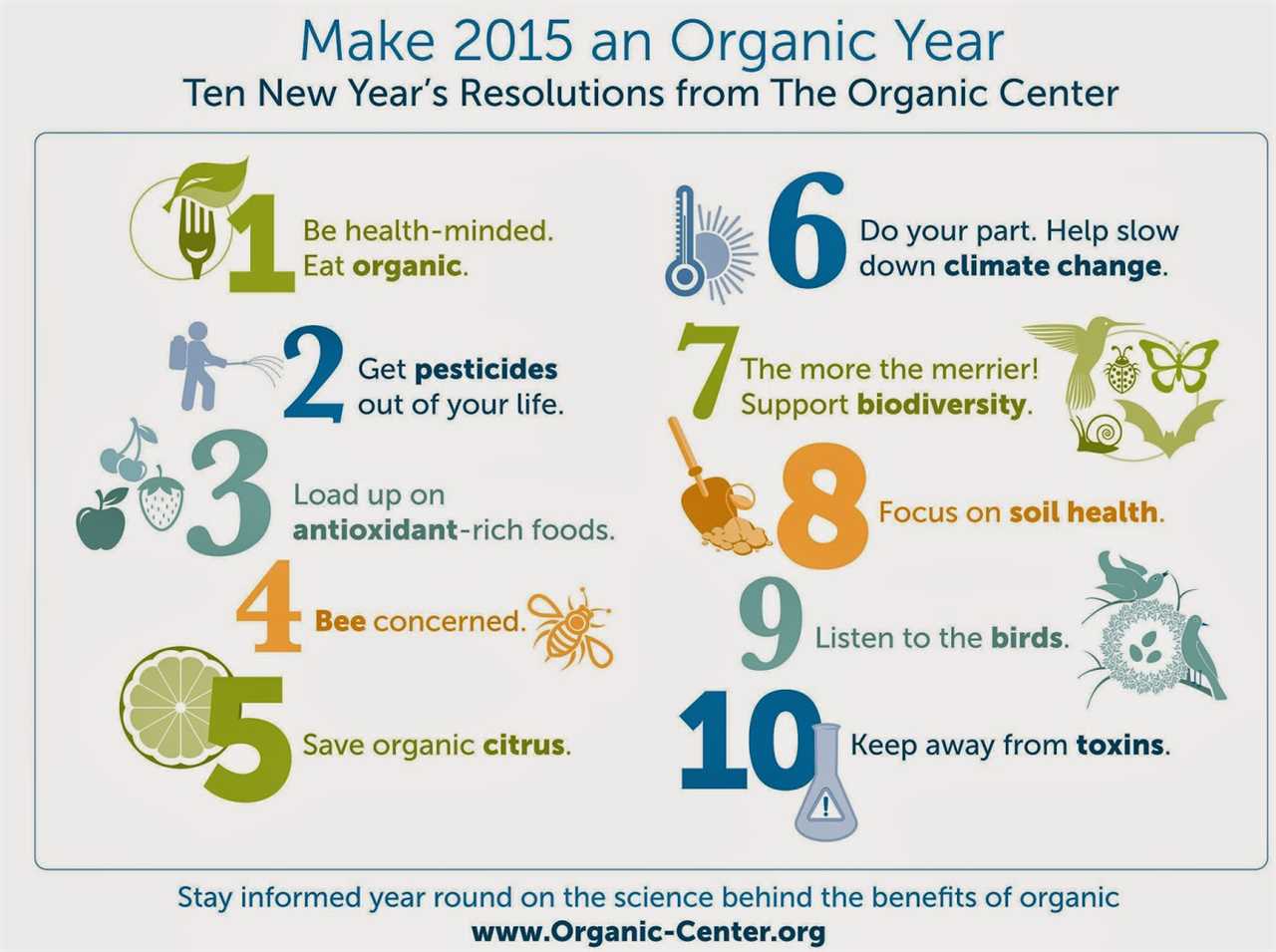 |
Organic vs Conventional Produce - The Dirty Dozen & Clean 15 ExplainedClick https://skl.sh/flavcitywithbobbyparrish to get 2 months of Skillshare for FREE! Here is a full review of the dirty dozen fruits and vegetables and |
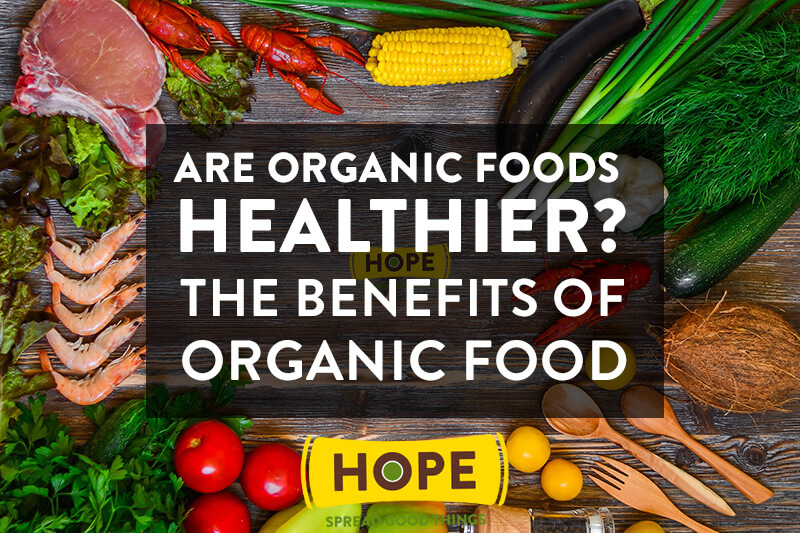 |
Are Organic Foods Really Healthier?It's widely believed that organic foods are more nutritious and safer than non-organic foods, even though the evidence is far from clear. Food certified as |
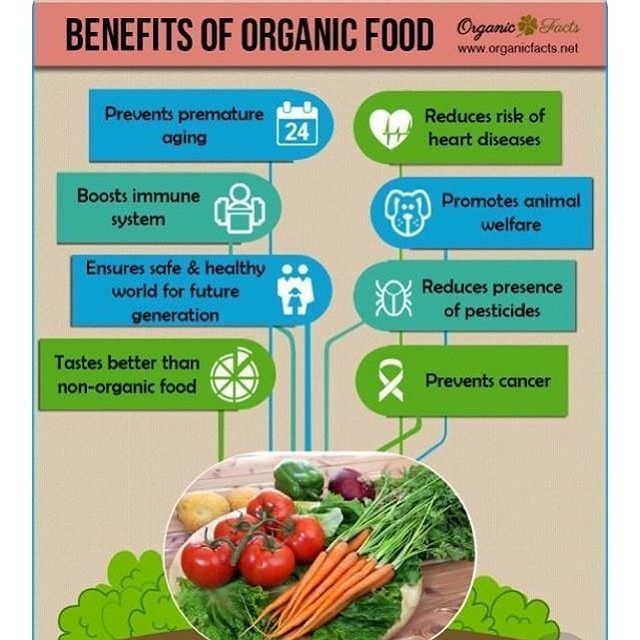 |
Are GMOs Good or Bad? Genetic Engineering & Our FoodAre GMOs bad for your health? Or is this fear unfounded? OUR CHANNELS German Channel: https://kgs.link/youtubeDE Spanish Channel: |
 |
How the food you eat affects your brain - Mia NacamulliView full lesson: http://ed.ted.com/lessons/how-the-food-you-eat-affects-your-brain-mia-nacamulli When it comes to what you bite, che […] |
 |
Is Buying Organic Food Worth The Cost?Subscribe to Goodful: https://bzfd.it/2QApoPk Goodful Goodful Feel better, be better, and do better. Subscribe to Goodful for all your healthy self care |
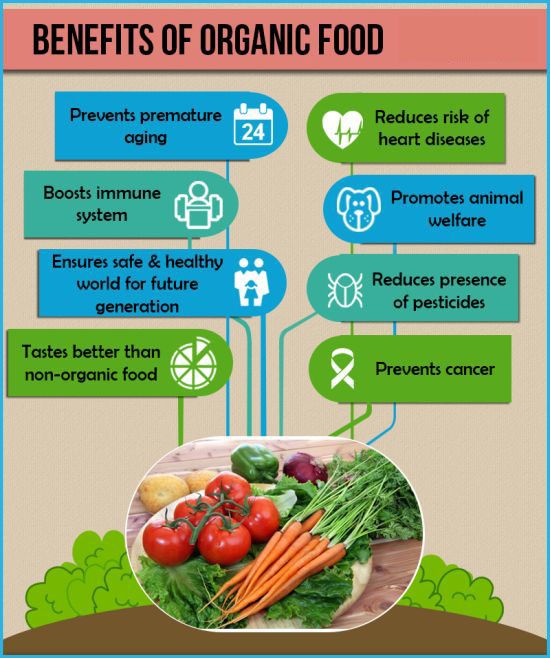 |
Benefits of Choosing Organic Gluten-Free OptionsIf you’ve been diagnosed with gluten sensitivity or celiac disease, you know how hard it can be to avoid foods containing wheat and other grains. But |
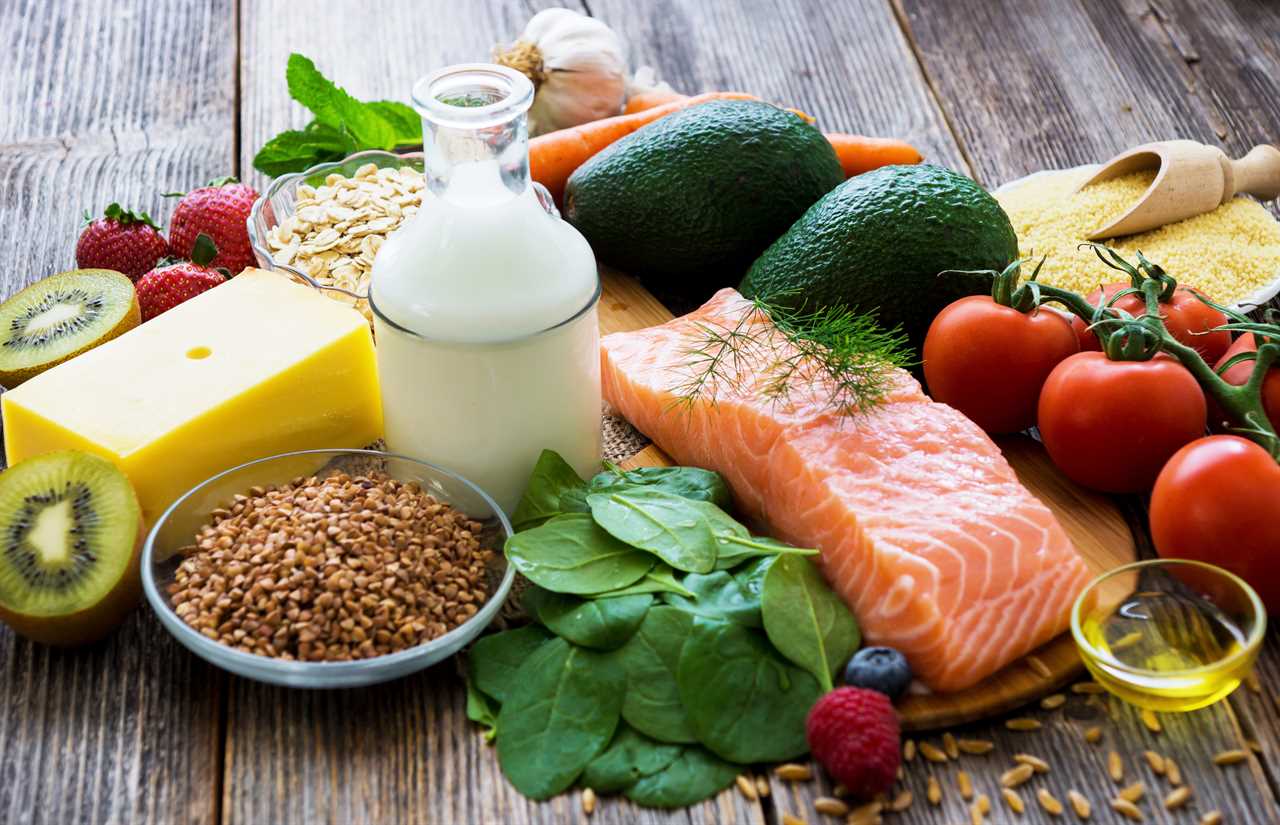 |
Joseph Wang LIVE (Bank Bailouts and Moral Hazards Deep Dive)buy my stuff Come to rebel capitalist live at https://rebelcapitalistlive.com Check out my private, online investment community (Rebel Capitalist Pro) |
 |
Organic Farming and Soil HealthOrganic farming practices promote soil health through crop rotations, symbiotic associations, cover crops and minimum tillage. These management.. |
 |
Research Reveals How Your Body Reacts When You Eat Only Organic FoodsThere is a growing belief that organic foods are healthier for us than non-organic foods. This ever-increasing belief is responsible for significant growth in |
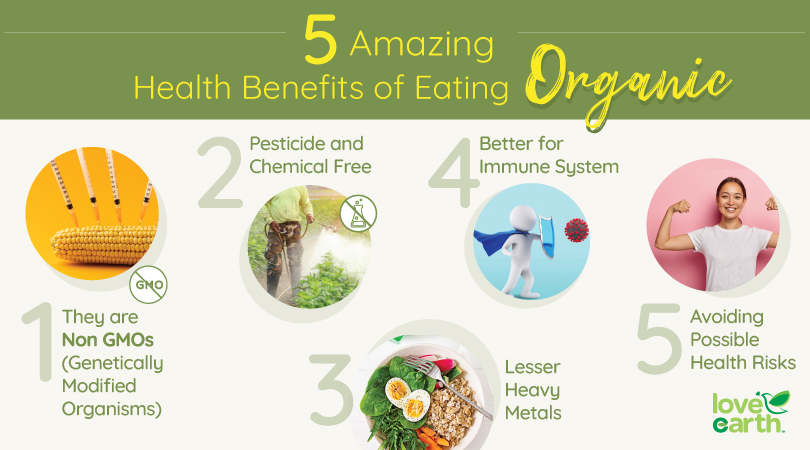 |
Stop Wasting Money on These ORGANIC Veggies (you don’t need to buy them organic)Click Here to Subscribe: http://Bit.ly/ThomasVid Get MY Recommendation on Groceries Delivered to Your Doorstep with Thrive Market: http: […] |
 |
If You Eat an Avocado a Day For a Month, Here''s What Will Happen to YouWhat Will Happen to Your Body If You Eat Avocado Every Day. The avocado is a unique fruit with multiple nutritional and health benefits. How would your body |
 |
Korean GardeningKorean gardening is one of the oldest ways to grow plants. It involves planting herbs, fruits, and vegetables that are used in kimchi, a type of.. |
 |
The Rodale InstituteThe Rodale Institute is a nonprofit organization that aims to support research into organic farming. It was founded in 1947 by J. I. Rodale, an.. |
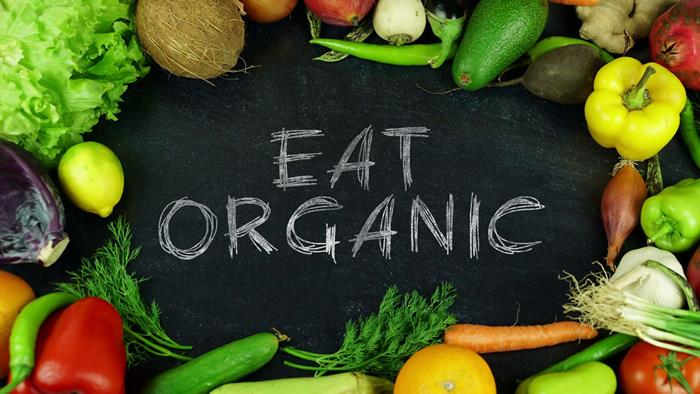 |
Organic eatingOrganic Cultur |
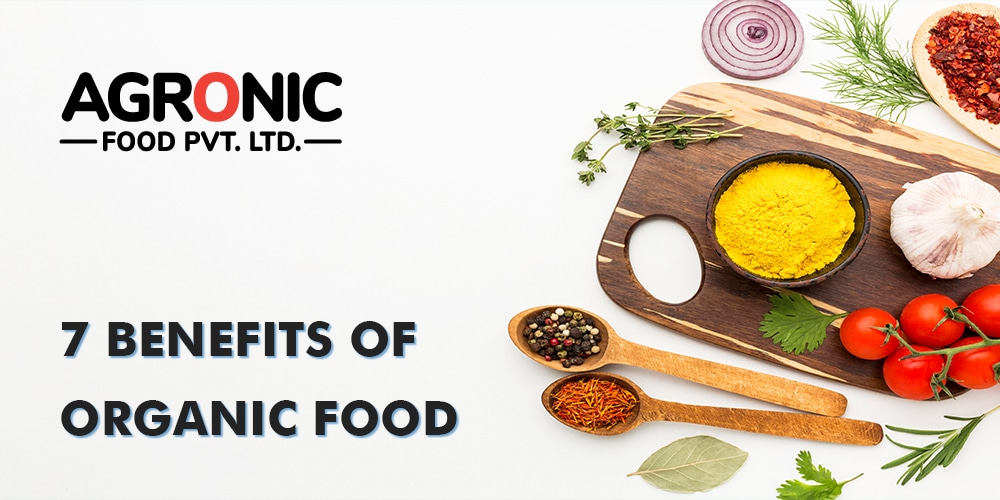 |
What is a Conventional Farm?Conventional farm is the term used to describe a farm that is not organic. It is a form of agriculture that is associated with better soil quality,.. |
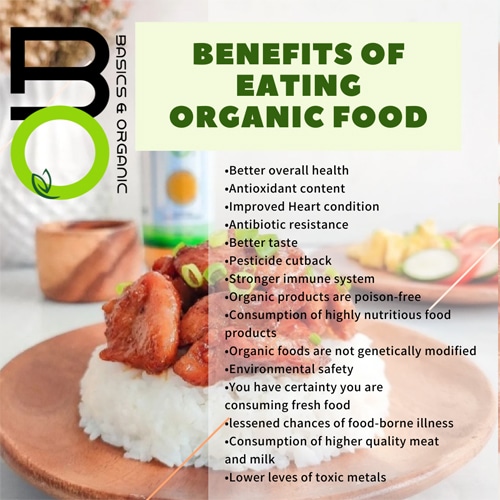 |
Chhattisgarh's Organic Farming SchoolsThe government of Chhattisgarh has started to introduce organic farming schools. This initiative is intended to provide the young generation with the |
 |
Can Organic Be GMO?The question Can organic be GMO is an ongoing debate among many consumers. While it's possible to eat foods that have been produced using genetic.. |
 |
When Did Organic Food Start?The answer to the question when did organic food start? will vary depending on the time period in which you are looking at. For instance, it may be a |
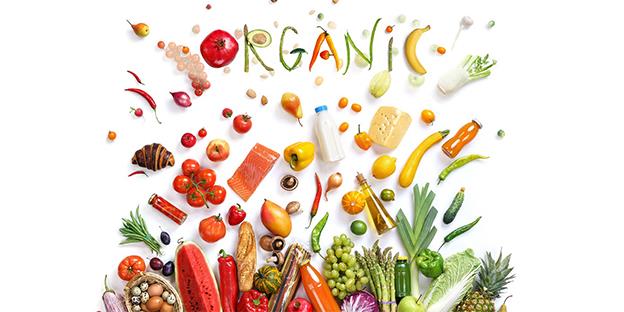 |
Organic Farming PrinciplesOrganic farming is a practice that is designed to be sustainable and healthy. Its principles include avoiding harms produced by industrial farming.. |
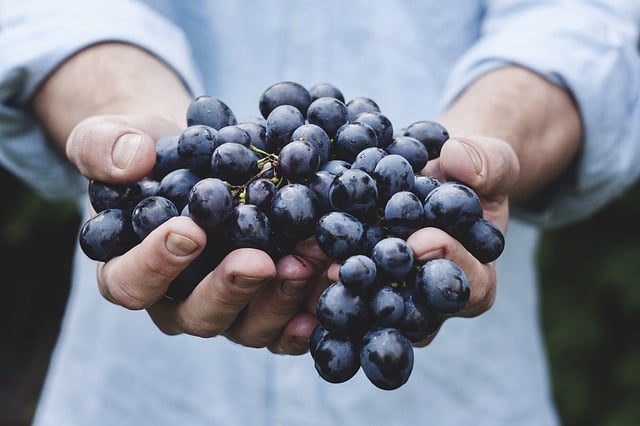 |
Soil Composition and BiodiversityThe soil that we have around us is a vital part of our lives. It is the home for many plants and animals. It also has a texture, a color, and many.. |
 |
The Benefits and Pitfalls of Organic Farming OrganizationsOrganic farming is an approach to farming that is not only ecologically sound, but also financially feasible. It is a method that is free from.. |
 |
Exotic VegetablesWhen it comes to vegetables, there are plenty of choices to choose from. Some of the most popular choices include broccoli, corn, carrots, and.. |
 |
Learn How to Become an Organic Farmer Through a Training ProgramIf you are looking to become an organic farmer, there are several ways you can do so. One option is to take a training program that will teach you.. |
 |
Benefits of Cover CropsIf you aren't familiar with cover crops, you may be surprised to learn that they are plants that are planted to grow on top of the soil to help.. |
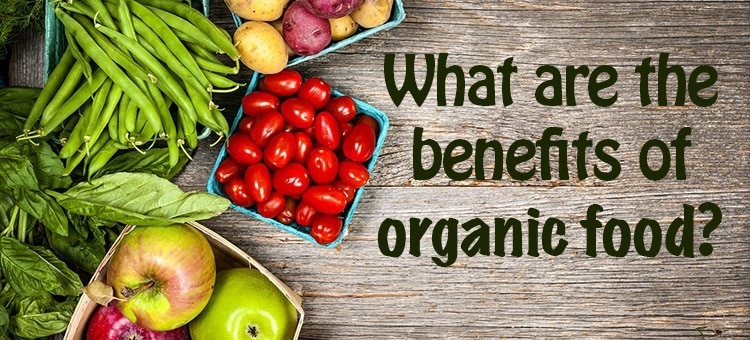 |
What is Organic Cotton?Organic cotton is the type of cotton that is grown without using pesticides or chemicals. It is also the type of cotton that is grown in subtropical.. |
 |
Is Organic Farming Beneficial to Biodiversity?Organic farming is a growing interest in the scientific community, and researchers have been investigating whether the practice is beneficial to.. |
 |
The Benefits of CompostingComposting your waste can be a very effective way of ensuring that your organic material is being broken down to the best of its ability. When.. |
 |
The Difference Between Organic Milk and Regular MilkOrganic milk is a type of milk that comes from livestock that is raised according to organic farming methods. This is a term that is regulated by.. |
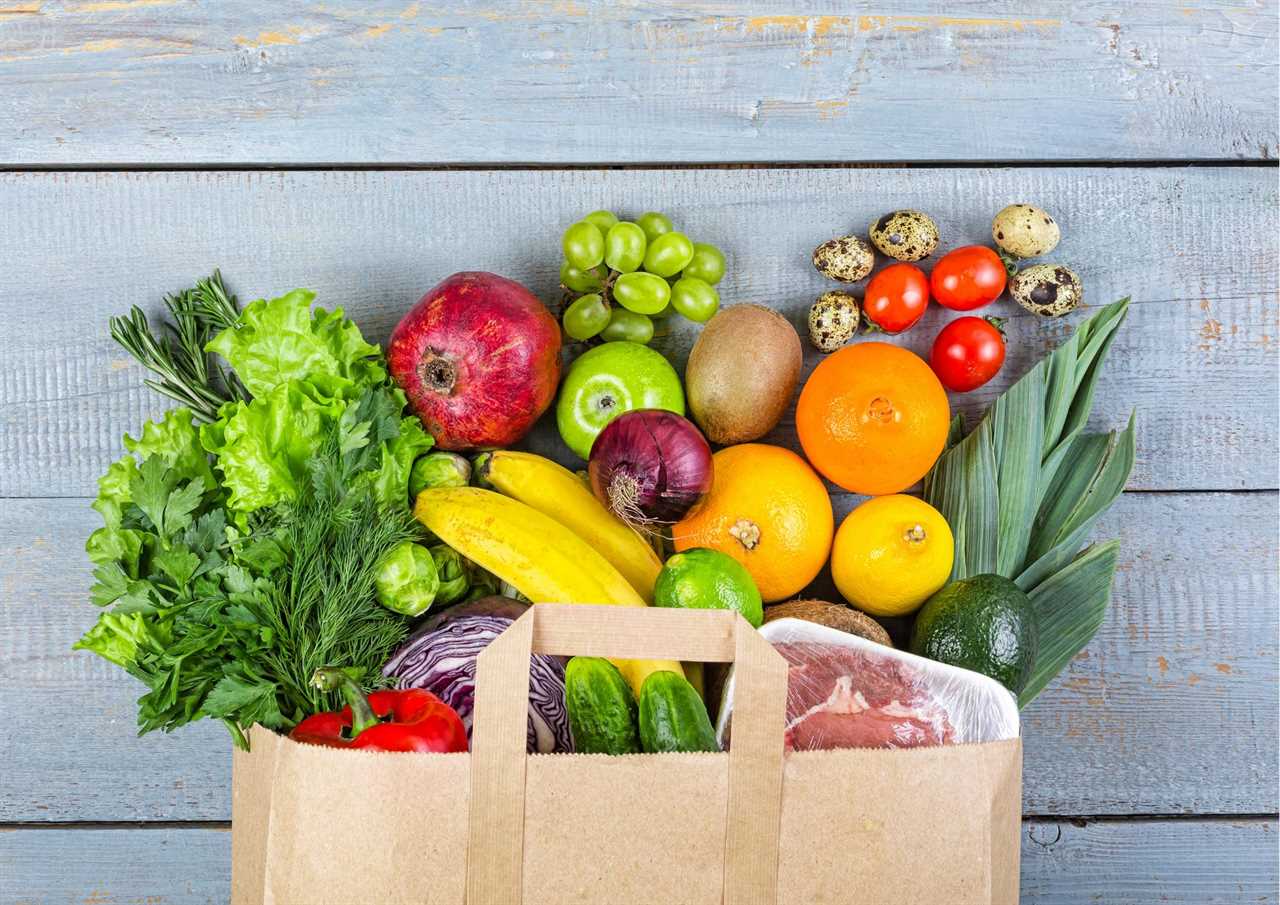 |
Organic Farming MagazineOrganic farming magazine is a resource that provides you with the latest information on organic agriculture, health, and sustainability. It also.. |
 |
The Latest Research on Organic | The Organic CenterResearched articles about eating Organic food |
.png)





